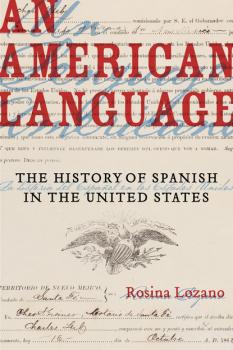Историческая литература
Различные книги в жанре Историческая литератураHas the Gay Movement Failed?
"Martin Duberman is a national treasure."—Masha Gessen, The New Yorker The past fifty years have seen significant shifts in attitudes toward LGBTQ people and wider acceptance of them in the United States and the West. Yet the extent of this progress, argues Martin Duberman, has been more broad and conservative than deep and transformative. One of the most renowned historians of the American left and the LGBTQ movement, as well as a pioneering social-justice activist, Duberman reviews the half century since Stonewall with an immediacy and rigor that informs and energizes. He revisits the early gay movement and its progressive vision for society and puts the left on notice as failing time and again to embrace the queer potential for social transformation. Acknowledging the elimination of some of the most discriminatory policies that plagued earlier generations, he takes note of the cost—the sidelining of radical goals on the way to achieving more normative inclusion. Illuminating the fault lines both within and beyond the movements of the past and today, this critical book is also hopeful: Duberman urges us to learn from this history to fight for a truly inclusive and expansive society.
Race Women Internationalists
Race Women Internationalists explores how a group of Caribbean and African American women in the early and mid-twentieth century traveled the world to fight colonialism, fascism, sexism, and racism. Based on newspaper articles, speeches, and creative fiction and adopting a comparative perspective, the book brings together the entangled lives of three notable but overlooked women: American Eslanda Robeson, Martinican Paulette Nardal, and Jamaican Una Marson. It explores how, between the 1920s and the 1960s, the trio participated in global freedom struggles by traveling; building networks in feminist, student, black-led, anticolonial, and antifascist organizations; and forging alliances with key leaders. This made them race women internationalists—figures who engaged with a variety of interconnected internationalisms to challenge various forms of inequality facing people of African descent across the diaspora and the continent. 
Beyond the Vanguard
For a thousand days in the early 1970s, Chileans experienced revolution not as a dream but as daily life. Alongside Salvador Allende’s attempt to democratically bring about a socialist regime, new understandings of the meaning of revolutionary change emerged. In her groundbreaking book <I>Beyond the Vanguard,</I> Marian E. Schlotterbeck explores popular politics in Chile in the decade before Augusto Pinochet’s dictatorship and provides an in-depth account of how working-class people transformed the existing social order by embracing radical politics. Schlotterbeck eloquently examines the lost opportunities for creating a democratic revolution and the ways that the legacy of this period continues to resonate in Chile and beyond.<BR /><BR /> Learn more about the author and this book in <a href="https://www.jacobinmag.com/2018/09/chilean-left-salvador-allende-coup-mir">an interview</a> published online with <I>Jacobin</I>.
Mediterranean Encounters
Mediterranean Encounters traces the layered history of Galata—a Mediterranean and Black Sea port—to the Ottoman conquest, and its transformation into a hub of European trade and diplomacy as well as a pluralist society of the early modern period. Framing the history of Ottoman-European encounters within the institution of ahdnames (commercial and diplomatic treaties), this thoughtful book offers a critical perspective on the existing scholarship. For too long, the Ottoman empire has been defined as an absolutist military power driven by religious conviction, culturally and politically apart from the rest of Europe, and devoid of a commercial policy. By taking a close look at Galata, Fariba Zarinebaf provides a different approach based on a history of commerce, coexistence, competition, and collaboration through the lens of Ottoman legal records, diplomatic correspondence, and petitions. She shows that this port was just as cosmopolitan and pluralist as any large European port and argues that the Ottoman world was not peripheral to European modernity but very much part of it.
Beyond Hawai'i
In the century from the death of Captain James Cook in 1779 to the rise of the sugar plantations in the 1870s, thousands of Kanaka Maoli (Native Hawaiian) men left Hawai‘i to work on ships at sea and in <I>na ‘aina ‘e </I>(foreign lands)—on the Arctic Ocean and throughout the Pacific Ocean, and in the equatorial islands and California. <I>Beyond Hawai‘i</I> tells the stories of these forgotten indigenous workers and how their labor shaped the Pacific World, the global economy, and the environment. Whether harvesting sandalwood or bird guano, hunting whales, or mining gold, these migrant workers were essential to the expansion of transnational capitalism and global ecological change. Bridging American, Chinese, and Pacific historiographies, <I>Beyond Hawai‘i</I> is the first book to argue that indigenous labor—more than the movement of ships and spread of diseases—unified the Pacific World.
Mock Classicism
In <I>Mock Classicism</I> Nilo Couret presents an alternate history of Latin American cinema that traces the popularity and cultural significance of film comedies as responses to modernization and the forerunners to a more explicitly political New Latin American Cinema of the 1960s. By examining the linguistic play of comedians such as Cantinflas, Oscarito and Grande Otelo, Niní Marshall, and Luis Sandrini, the author demonstrates aspects of Latin American comedy that operate via embodiment on one hand and spatiotemporal emplacement on the other. Taken together, these parallel examples of comedic practice demonstrate how Latin American film comedies produce a "critically proximate" spectator who is capable of perceiving and organizing space and time differently. Combining close readings of films, archival research, film theory, and Latin American history, <I>Mock Classicism</I> rethinks classicism as a discourse that mediates and renders the world and argues that Latin American cinema became classical in distinct ways from Hollywood.<BR />  
The Jazz Bubble
Hailed by corporate, philanthropic, and governmental organizations as a metaphor for democratic interaction and business dynamics, contemporary jazz culture has a story to tell about the relationship between political economy and social practice in the era of neoliberal capitalism. <I>The Jazz Bubble</I> approaches the emergence of the neoclassical jazz aesthetic since the 1980s as a powerful, if unexpected, point of departure for a wide-ranging investigation of important social trends during this period, extending from the effects of financialization in the music industry to the structural upheaval created by urban redevelopment in major American cities. Dale Chapman draws from political and critical theory, oral history, and the public and trade press, making this a persuasive and compelling work for scholars across music, industry, and cultural studies.
Japan
Japan: History and Culture from Classical to Cool provides a historical account of Japan’s elite and popular cultures from premodern to modern periods. Drawing on the most up-to-date scholarship across numerous disciplines, Nancy K. Stalker presents the key historical themes, cultural trends, and religious developments throughout Japanese history. Focusing on everyday life and ordinary consumption, this is the first textbook of its kind to explore both imperial and colonial culture and offer expanded content on issues pertaining to gender and sexuality. Organized into fourteen chronological and thematic chapters, this text explores some of the most notable and engaging aspects of Japanese life and is well suited for undergraduate classroom use.  
An American Language
"This is the most comprehensive book I’ve ever read about the use of Spanish in the U.S. Incredible research. Read it to understand our country. Spanish is, indeed, an American language."—Jorge RamosAn American Language is a tour de force that revolutionizes our understanding of U.S. history. It reveals the origins of Spanish as a language binding residents of the Southwest to the politics and culture of an expanding nation in the 1840s. As the West increasingly integrated into the United States over the following century, struggles over power, identity, and citizenship transformed the place of the Spanish language in the nation. An American Language is a history that reimagines what it means to be an American—with profound implications for our own time.
Canned
2019 James Beard Foundation Book Award winner: Reference, History, and Scholarship A century and a half ago, when the food industry was first taking root, few consumers trusted packaged foods. Americans had just begun to shift away from eating foods that they grew themselves or purchased from neighbors. With the advent of canning, consumers were introduced to foods produced by unknown hands and packed in corrodible metal that seemed to defy the laws of nature by resisting decay.   Since that unpromising beginning, the American food supply has undergone a revolution, moving away from a system based on fresh, locally grown goods to one dominated by packaged foods. How did this come to be? How did we learn to trust that food preserved within an opaque can was safe and desirable to eat? Anna Zeide reveals the answers through the story of the canning industry, taking us on a journey to understand how food industry leaders leveraged the powers of science, marketing, and politics to win over a reluctant public, even as consumers resisted at every turn.









